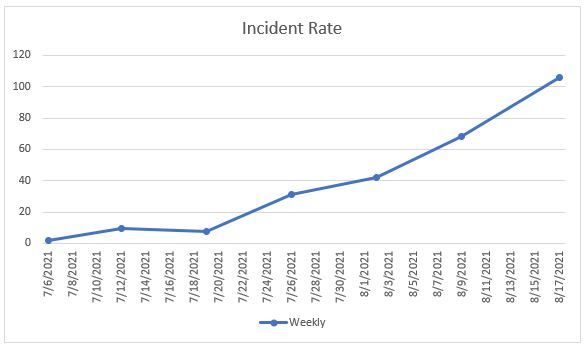The bill in the number-one spot in the Senate had been conspicuously absent for much of this session. But all that changed this week when, on Tuesday, a much anticipated public pension overhaul bill was filed as SB 1.
While it is a Senate bill, the presiding officers in both the House and the Senate back the bill and say they expect little change to its substantive provisions when it comes up for an expected vote in Senate committee next week. They say it does what it is designed to do: reduce the unfunded liability to the state’s public employee and teachers’ retirement systems over at least two decades while protecting existing pensions and saving taxpayers upwards of $4.8 billion.
The bill is considered more favorable to retirees than proposals unveiled last year. It would allow all current public employees and teachers to remain in their current pension or cash balance plan (a cross between a pension plan and a contribution plan) with no mandated placement into a defined contribution, or 401(k)-type, plan. State employees hired in 2019 would instead be able to choose a 401(a) retirement plan, and there would be no requirement for public employees or all teachers to pay an extra three percent of their salary for retiree health care.
That’s not to say that SB 1 is agreeable to everyone. There are groups that have expressed concern with how the legislation may affect current and future retirees. Proposed changes to the use of sick days in retirement service credit calculations for state workers and teachers, proposed cost-of-living adjustment reductions for current and future retired teachers, and a proposal to move future teachers into hybrid cash balance plan, as well as other provisions, have created some uneasiness.
The challenge for us lawmakers is to do what’s best for our public employees, our teachers, and the taxpayers of the Commonwealth. That means fixing a pension mess that needs upwards of $60 billion to ensure that we can pay retirement benefits to the public employees and teachers who are in the system now, while creating a path to retirement for future teachers and workers.
You may have heard the phrase “kicking the can down the road” in reference to the state’s pension crisis. When the can is weighted down by $60 billion, it’s a little hard to kick. We have to deal with this issue, and it is up to the will of the General Assembly whether the time to do so is before this session ends in mid-April.
We know that SB 1 is a priority by virtue of its number and subject matter, but there are other bills that are also legislative priorities in the remaining session days ahead. HB 2 is one of those bills, geared toward what supporters say is a necessary modernization of the state’s workers’ compensation laws.
The bill would make what some say are the first substantive changes in 22 years to the state’s workers’ comp laws. It would not impact current workers’ comp benefits received by injured workers, but would limit benefits received by future workers with certain injuries to 15 years with a chance to become recertified and continue receiving benefits after the 15 years have passed. It would also increase the percentage of the average weekly wage paid as income to injured workers to 110 percent and revise medical treatment guidelines, among other provisions.
Any bill that involves worker benefits—whether it’s a pension bill or workers’ comp bill—is going to be strongly debated when it comes to the floor for a vote. Such was the case with HB 2. Debate before Wednesday’s floor vote on the bill revealed strong feelings for both the interests of business and the injured worker. In the end, the bill passed by a relatively narrow margin of 55-39.
Let me take a moment to also comment on bipartisan legislation with top billing in the House -- HB 1. The overall purpose of the bill, which was unanimously approved by the House Health and Family Services Committee on Thursday, is to reform Kentucky’s adoption and foster care system for more than 8,600 children in state out-of-home care who may or may not be able to return home to family. The bill now goes to the full House for consideration.
The bills we have before us now will pretty much take us through the 2018 regular session’s remaining five or six weeks. Next Tuesday, Feb. 27, will be the last day for any new House bills to be filed for consideration this session, limiting the sheer number of bills vying for our attention as we finish our work on SB 1 and the biennial state budget, which we must pass before this session’s end.
Please continue to stay informed of all legislative action during the 2018 Regular Session by reading the daily Legislative Record, which is found on the Legislative Research Commission website at www.lrc.ky.gov. You can also leave comments for your state Representatives and Senators by calling the Legislative toll-free Message Line at 800-372-7181.
Richard Heath of Mayfield represents the 2nd District of Kentucky's House of Representatives, which includes Graves County and part of McCracken County. This column was produced by House Majority Communications, and made available for House Republican Members to distribute.
Advertisement
House Week in Review-By Rep. Richard Heath
Advertisement
Latest Western Kentucky
Western Kentucky
Feb. 16, 2023
Western Kentucky
Aug. 18, 2021
Western Kentucky
Aug. 14, 2021
Western Kentucky
May. 27, 2021
Western Kentucky
Apr. 27, 2021
ADVERTISEMENT
Most Read >
ADVERTISEMENT
Latest Western Kentucky
Western Kentucky
Feb. 16, 2023
Western Kentucky
Aug. 18, 2021
Western Kentucky
Aug. 14, 2021
Western Kentucky
May. 27, 2021
Western Kentucky
Apr. 27, 2021
Advertisement
ADVERTISEMENT





